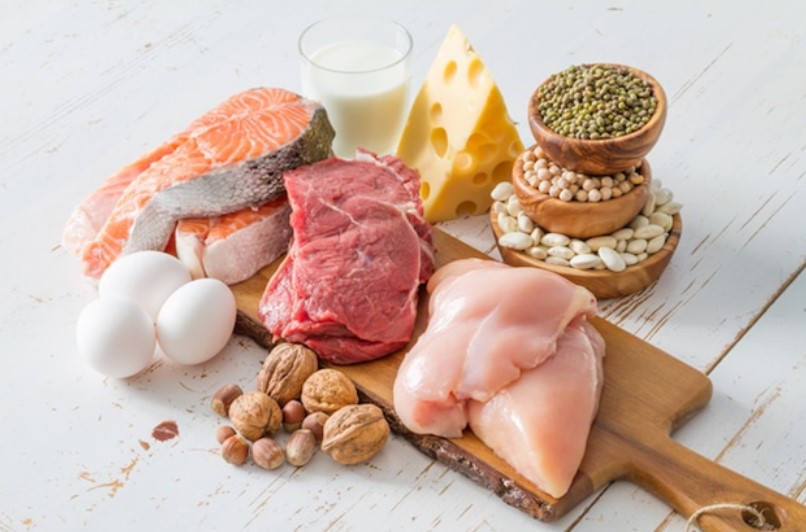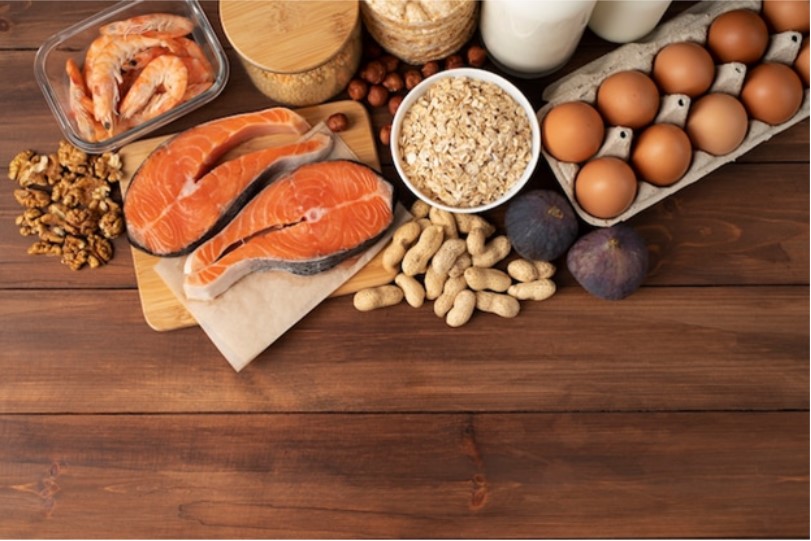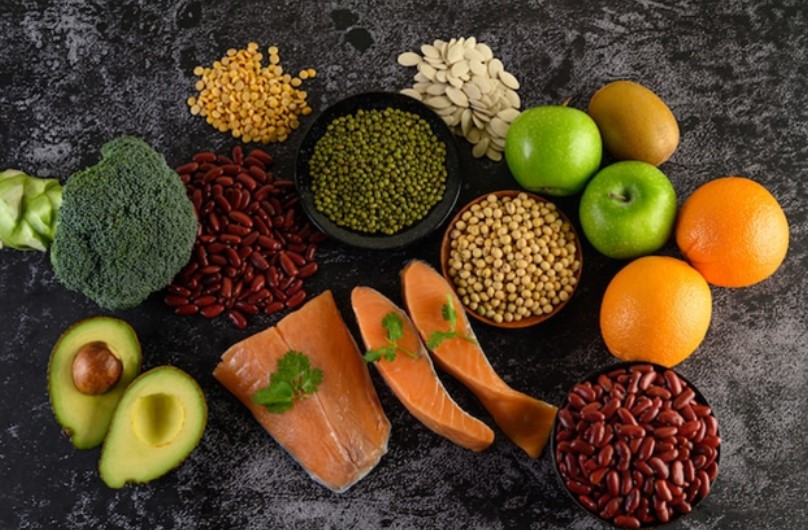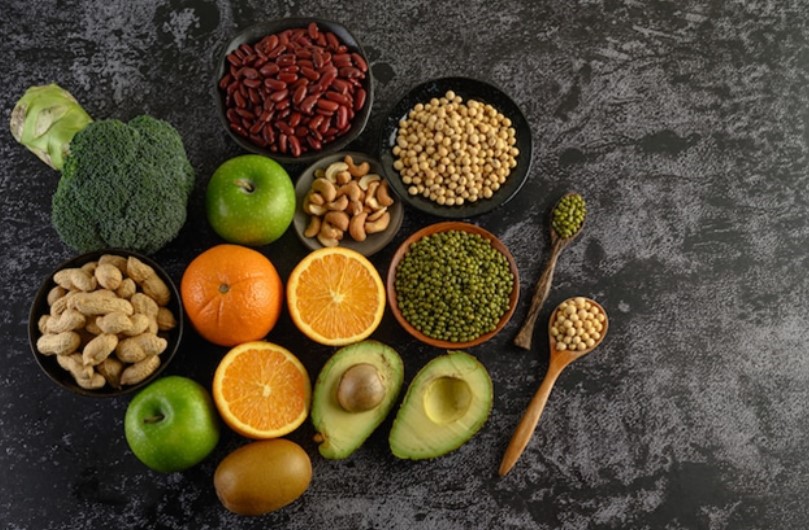What is Lean Protein?
When we think of protein, we often associate it with meat, eggs, or dairy products. However, not all proteins are created equal, and that’s where “lean protein” comes in. Lean protein sources contain minimal amounts of fat and cholesterol while providing all the benefits of protein. In essence, lean protein is a type of protein that promotes muscle building and fat burning, making it an essential nutrient in any healthy diet. By incorporating lean protein sources like chicken breast, fish, tofu, and low-fat dairy products into your meals, you can ensure that you’re meeting your daily requirements while also improving your overall health and fitness levels.
Benefits of Lean Protein
Lean protein is a type of protein that is low in fat and calories. It is an important part of a healthy diet, and can provide a number of health benefits.
Some of the benefits of lean protein include:
- Weight loss and maintenance. Protein can help you feel full longer, which can help you eat fewer calories and lose weight. It can also help you maintain muscle mass, which is important for metabolism and overall health.
- Muscle building. Protein is essential for muscle growth and repair. If you are trying to build muscle, it is important to include plenty of lean protein in your diet.
- Heart health. Lean protein can help lower cholesterol levels and reduce the risk of heart disease.
- Blood sugar control. Lean protein can help improve blood sugar control, which is important for people with diabetes or prediabetes.
- Bone health. Protein is essential for strong bones. It helps to build and maintain bone mass, which can help prevent osteoporosis.
- Skin health. Protein is important for healthy skin. It helps to keep skin hydrated and elastic.
- Hair health. Protein is important for healthy hair. It helps to keep hair strong and prevent breakage.
- Nail health. Protein is important for healthy nails. It helps to keep nails strong and prevent breakage.
- Immunity. Protein is essential for a strong immune system. It helps the body to fight off infection.
Best Animal Sources of Lean Protein
Turkey
Turkey is a lean protein that provides a variety of essential nutrients. With low-fat content, it can help build muscle mass and aid in weight loss. Consuming turkey regularly can also improve heart health and lower cholesterol levels. This versatile meat can be prepared in several ways, such as grilling, roasting or baking. Whether you are looking to build muscle or lose fat, incorporating turkey into your diet can have a positive impact on your health and body composition.
Chicken
Chicken is an excellent source of lean protein that can help build muscle and burn fat. With 3 ounces providing around 25 grams of protein, chicken is a low-fat option that can be prepared in many ways, including grilling, baking, or sautéing. Its versatility allows for variety in your diet, making it easy to incorporate into dishes like salads and stir-fries. Opt for organic or free-range chicken to ensure the highest quality and nutritional value. With its high protein content and low fat content, chicken is a great choice for those looking to improve their overall health and fitness.
Fish including Salmon and Tuna
Fish, particularly salmon and tuna, are excellent sources of lean protein that can help with muscle recovery and inflammation reduction due to their omega-3 fatty acid content. Moreover, both fish are low in fat and high in vital vitamins and minerals, making them a preferred option for anyone looking to build muscle or burn fat. Incorporating these types of fish into your diet is simple since they can be prepared in various ways ranging from salads to grilled dishes. To ensure the highest quality and nutritional value, opt for wild-caught varieties whenever possible.
Pork Loin
Pork loin is a fantastic source of lean protein that is often overlooked in favor of chicken or fish. With 3 ounces containing around 20 grams of protein, pork loin is an excellent choice for those looking to build muscle and burn fat. Additionally, it is low in fat and calories, making it a healthy option for weight loss goals. Pork loin can be cooked in a variety of ways, from grilling to sautéing, and seasoned with herbs and spices for added flavor without adding extra calories. Incorporating pork loin into your diet can help you meet your daily protein needs and support your fitness goals.

Best Plant-Based Sources of Lean Protein
Legumes:
Legumes are an excellent source of plant-based protein that can help you meet your daily protein needs. They also provide a host of other essential nutrients and are high in fiber, which helps keep you feeling full. Whether you’re a vegetarian or just looking to diversify your protein sources, incorporating legumes like lentils, chickpeas, and black beans into your diet is a smart choice. Plus, they can be prepared in countless ways, from soups and stews to salads and dips, making them versatile and delicious. So why not swap out some of your usual protein sources for legumes today?
Edamame:
Edamame is an often-overlooked source of lean protein that deserves more attention. This plant-based snack provides a hefty dose of protein, fiber, iron, and folate. Edamame is versatile and can be enjoyed on its own as a snack or added to a variety of dishes like stir-fries, soups, and salads. And with its low-calorie and low-fat content, it’s an excellent choice for anyone looking to build muscle and burn fat without sacrificing taste or nutrition. So why not give this underappreciated legume a try?
Best Dairy Sources of Lean Protein
Low-fat Milk:
Incorporating low-fat milk into your diet is an excellent way to get lean protein, with 8 grams of protein per cup. Low-fat milk also contains essential vitamins and minerals such as calcium, vitamin D, and potassium. This makes it a great choice for supporting muscle growth and repair after workouts, as well as aiding in weight loss by providing necessary nutrients while decreasing overall calorie intake. To enjoy the benefits of low-fat milk, try incorporating it into recipes such as smoothies, soups, and sauces or simply enjoy a glass on its own.
Plain Yogurt:
Introducing plain yogurt to your diet is an easy way to increase your lean protein intake. With about 12 grams of protein per cup, it is a great option for those seeking a low-fat, high-protein snack or ingredient. Not only does plain yogurt provide protein, but it also contains probiotics that can help improve gut health and boost the immune system.
To ensure that you are consuming a healthy version of yogurt, choose plain yogurt without any added sugars or flavors. Greek yogurt is even higher in protein than regular yogurt, with up to 20 grams of protein per cup. It can be used in a variety of recipes such as smoothies, dips, and sauces to add nutrition and flavor without adding too many extra calories.
Cottage Cheese:
Cottage cheese is a nutritional powerhouse that is often overlooked. With about 25 grams of lean protein per cup, it’s an excellent choice for building muscle and burning fat. Not only is cottage cheese low in calories and fat, but it’s also rich in calcium, which supports bone health. Its versatility makes it a great option for breakfast, lunch or dinner. Enjoy it on its own or use it as a base for dips, spreads and sauces. For optimal results, pair cottage cheese with other high-protein foods such as eggs or nuts.

How Much Lean Protein Do You Need?
Meeting the recommended daily intake of protein is crucial for optimal health and fitness. The amount of protein required varies depending on an individual’s weight, activity level, and fitness goals. Generally, it is recommended to consume 0.8 grams of protein per kilogram of body weight. However, for athletes and bodybuilders looking to build muscle and burn fat, consuming 1 gram of protein per pound of body weight is recommended. Including lean sources of protein such as chicken breast, fish, tofu, lentils, and Greek yogurt in your diet can help you meet your daily protein requirements and support muscle growth and repair. It’s also important to spread out your protein intake throughout the day for maximum benefit.
Protein Calculations Based on Body Weight and Activity Level
To achieve optimal muscle growth and fat burning results, it’s important to consume the right amount of lean protein based on your body weight and activity level. For sedentary individuals, the recommended daily intake is about 0.8 grams of protein per kilogram of body weight. However, for those who are more active or trying to build muscle, it’s recommended to consume 1-1.5 grams of protein per kilogram of body weight.
It’s essential to choose lean sources of protein to maintain a balanced diet and avoid excess calories and fat. Some excellent sources of lean protein include chicken breast, fish, legumes, and tofu. Additionally, spreading out your protein intake throughout the day supports muscle growth and repair while keeping you feeling full and satisfied. Remember that while protein supplements can be convenient, they should not replace whole food sources in your diet.
Supplements and Lean Protein
Whey Protein:
When it comes to lean protein supplements, whey protein is a popular choice for fitness enthusiasts. This type of protein is derived from milk and contains all nine essential amino acids necessary for muscle growth and repair. Whey protein is quickly absorbed by the body, making it an ideal post-workout supplement. Additionally, it is available in different forms such as concentrate, isolate, and hydrolysate, with varying levels of purity and processing. However, when choosing a whey protein supplement, it’s important to consider factors such as taste, ingredient quality, and price to ensure that you are getting the best value for your money.
Other Types of Protein Supplements:
With the growing demand for protein supplements, there are numerous types of supplements available in the market. While whey protein is the most popular and widely consumed supplement, there are other types of protein supplements that offer unique benefits. Casein protein, for instance, is a slow-digesting protein that provides a steady stream of amino acids to support muscle growth and recovery. Plant-based protein supplements such as soy protein or pea protein are great options for vegans or those with lactose intolerance. Collagen protein supplements have also gained popularity recently due to their benefits for skin health, joint health, and muscle building.
Let’s Sum Up
Incorporating lean protein into your diet can help you build muscle, burn fat, and maintain a healthy weight. Lean protein is an essential nutrient that provides the building blocks for your body to function at its best. Whether you prefer animal-based, plant-based, or unconventional sources of protein, there are plenty of options available to suit your dietary preferences and needs. To get started on your lean protein journey, check out our recommended daily intake of protein based on body weight and activity level, as well as our recipe ideas for balanced meals. The bottom line is that incorporating lean protein into your diet can lead to a healthier lifestyle overall. So why not give it a try?



